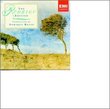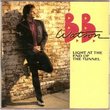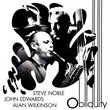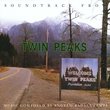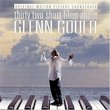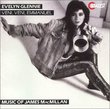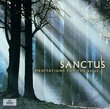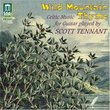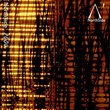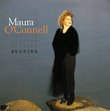| All Artists: Thomas Ades, Louise Hopkins, Lynsey Marsh, Anthony Marwood, David Goode, Stephen Farr, Valdine Anderson, Mary Carewe Title: Ades: Catch/Darknesse Visible/Still Sorrowing/Under Hamelin Hill/Five Eliot Landscapes/Traced OVerhead/Life Story Members Wishing: 3 Total Copies: 0 Label: Angel Records Release Date: 11/5/2002 Album Type: Import, Limited Edition, Original recording reissued Genres: Pop, Classical Styles: Vocal Pop, Opera & Classical Vocal, Chamber Music, Historical Periods, Classical (c.1770-1830) Number of Discs: 1 SwapaCD Credits: 1 UPC: 724356969926 |
Search - Thomas Ades, Louise Hopkins, Lynsey Marsh :: Ades: Catch/Darknesse Visible/Still Sorrowing/Under Hamelin Hill/Five Eliot Landscapes/Traced OVerhead/Life Story
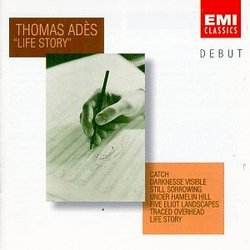 | Thomas Ades, Louise Hopkins, Lynsey Marsh Ades: Catch/Darknesse Visible/Still Sorrowing/Under Hamelin Hill/Five Eliot Landscapes/Traced OVerhead/Life Story Genres: Pop, Classical
This first release by the wunderkind composer of British music, Thomas Adès (born in 1971), documents a restless imagination combined with a knack for uncovering attractive timbres, compelling harmonies, and a vital s... more » |
Larger Image |
CD DetailsSynopsis
Amazon.com This first release by the wunderkind composer of British music, Thomas Adès (born in 1971), documents a restless imagination combined with a knack for uncovering attractive timbres, compelling harmonies, and a vital sense of storytelling in music. There's no one voice here, as Adès experiments with each piece as a new sound world, and the success of these youthful trials supports Adès's reputation. His Opus 1, Five Eliot Landscapes--published when he was 17--shows him confident and sensitive at word setting, allowing clean articulation from bright soprano Valdine Anderson. In his rhythmically off-kilter Opus 4, Catch, we hear influences of Ligeti, but as seen from a thoughtful distance; Adès is remarkably self-aware when dipping into his broad inspirations. Still Sorrowing (Op. 7) is the most striking: the piano's middle register is muted with a strip of Blu-Tac, creating gamelan-like effects. But it's no gimmick. The piece, beautifully played by the composer, is a 10-minute wonder of pale colors and bittersweet emotion. Life Story sets a Tennessee Williams poem about pillow talk and incineration for the pop-voiced soprano Mary Carewe. This might be considered more of a "sound experience" than his follow-up CD Living Toys and his opera Powder Her Face. Yet it's vividly recorded and unmissable at budget price. --Pierre Ruhe Similar CDs
Similarly Requested CDs |
CD ReviewsWhat's all the fuss about? Simon | London, England | 01/11/2000 (3 out of 5 stars) "I'm sorry, but I can't help thinking that this CD has been somewhat overrated. When this was first released, I can understand that those reviewing it were really excited at the thought of an exceptionally talented composer's music already coming out on CD for the first time (and Ades was still only in his mid-twenties!) Those such reviewers were naturally compelled to bestow mountains of praise out of all proportion to the music's intrinsic merits. This CD was released in 1997, the same year Ades wrote Concerto Conciso and Asyla, but consists of mostly early music of his, apart from Traced Overhead (the best on the set). Inevitably he's written far better stuff since, with the possible exceptions of Catch and Under Hamelin Hill, which, without being exactly profound, show a striking gift for instrumental sonorites within a limited chamber compass and kaleidoscopic mood changes. But I have distinct reservations about most of the other pieces. I alluded above to the quality of Traced Overhead; this is the work most evident of a very promising talent, with Ades showing a keen awareness of the work of the French impressionists from Debussy to Messiaen, but transforming that knowledge into a very personal and pianistically conceived piece of music. (I have seen the score in Foyles recently, and am amazed by the array of complex instructions it contains; e.g time signatures like 5/12, 3/4 pedalling, but obviously Ades knew what he was about!) Darkness Visible is for me too much a study in ambient effects, with Dowland's song obviously compromising his normally much more astringent harmonic idiom; but it is concise and effective as such. Five Eliot Landscapes are indeed remarkable achievements for an eighteen-year-old, but they are at times a bit too reminiscent of late Britten in his songs and lack variety of mood or overall purpose. Life Story, ironically the title track, is easily the weakest of the set. The idea of employing a singer to sing in the style of Billie Holiday may seem novel and ingenious in itself, but against the backdrop of disjointed and overly dissonant piano chords, it ultimately becomes inane and pointless. Maybe this work would make more sense in its instrumental version; but somehow I doubt it. I cannot what the writer of the CD sleeve notes got so worked up about when he heard Still Sorrowing; like Traced Overhead, it reveals a very individual mind when it comes to ingenious pianistic sounds (especially in the use of Blu-Tac on the strings), but unlike the former, it lacks real emotion, and in essence consists of a series of strikingly original but superficial effects. In sum: a compilation showing abundant evidence of a fertile and very original talent, but very uneven on the whole. To appreciate the very essence of Ade's genius and what he has achieved so far, I would recommend buying the later compilations such as Living Toys and Asyla instead." Sparkling, original music Peter Shultz | Chicago, IL USA | 12/06/1999 (4 out of 5 stars) "The first of two CD's to feature Thomas Adès on EMI's Debut label, "Life Story" sparkles with wit and vivid imagination. The first piece on the program, "Catch", is an entertaining, almost frantic chamber piece featuring a mobile clarinet player who taunts, but eventually joins a stationary piano trio. Although the rhythmic texture here is reminiscent of Ligeti, the sonorities are original, with rude clarinet slurps offset against crystalline triads in the cello and violin harmonics. The next two pieces are for solo piano. "Darknesse Visible" presents a recomposition of the John Dowland song "In Darknesse Let Me Dwelle"; stark chimes in the outer registers of the piano enclose pianissimo tremolos, played by Adès himself with a nearly vocal smoothness of expression. "Still Sorrowing" calls for a strip of Blu-Tac to be placed across the central strings of the piano, giving what the liner notes (by Andrew Porter) describe as a "dull, drumming sound above which the treble can sparkle, ripple or ting; below which the bass can murmur or toll." The rest of the pieces include a playful suite for chamber organ, five stirring songs (composed at the age of on 17!) on verse by T.S. Eliot, a brilliant piano sonata, and a "cool, wry, and disturbing" setting of a Tennessee Williams poem. If you are already familiar with the music of Thomas Adès and have somehow missed this out, this CD is worth the asking price for the piano pieces alone. If you are new to this composer, this CD provides a thrilling, absolutely worthwhile overview of his chamber repertoire. I have been making my friends listen to it since the day I bought it. The music is fascinating and immensely enjoyable, the performances precise and expressive. Highly recommended." Indeed! What IS all the fuss about? Peter Shultz | 05/19/2002 (1 out of 5 stars) "I decided to check in and see what sort of reviews this CD has received and now I must put in my two cents' worth in echoing the negative comments. I read about Ades in the New Yorker about two years ago and then picked up this CD to check out his music. What a disappointment! To sum it all up very quickly and be done with it: the music is TOTALLY derivative. Anyone who has a fair knowledge of 20th century composition will not be in the least surprised or inspired. What was amusing about the New Yorker article was Ades' rather callow criticism of Brahms as being a bit tired or something along that line. Please, Tom! Don't be silly!"
|

 Track Listings (15) - Disc #1
Track Listings (15) - Disc #1